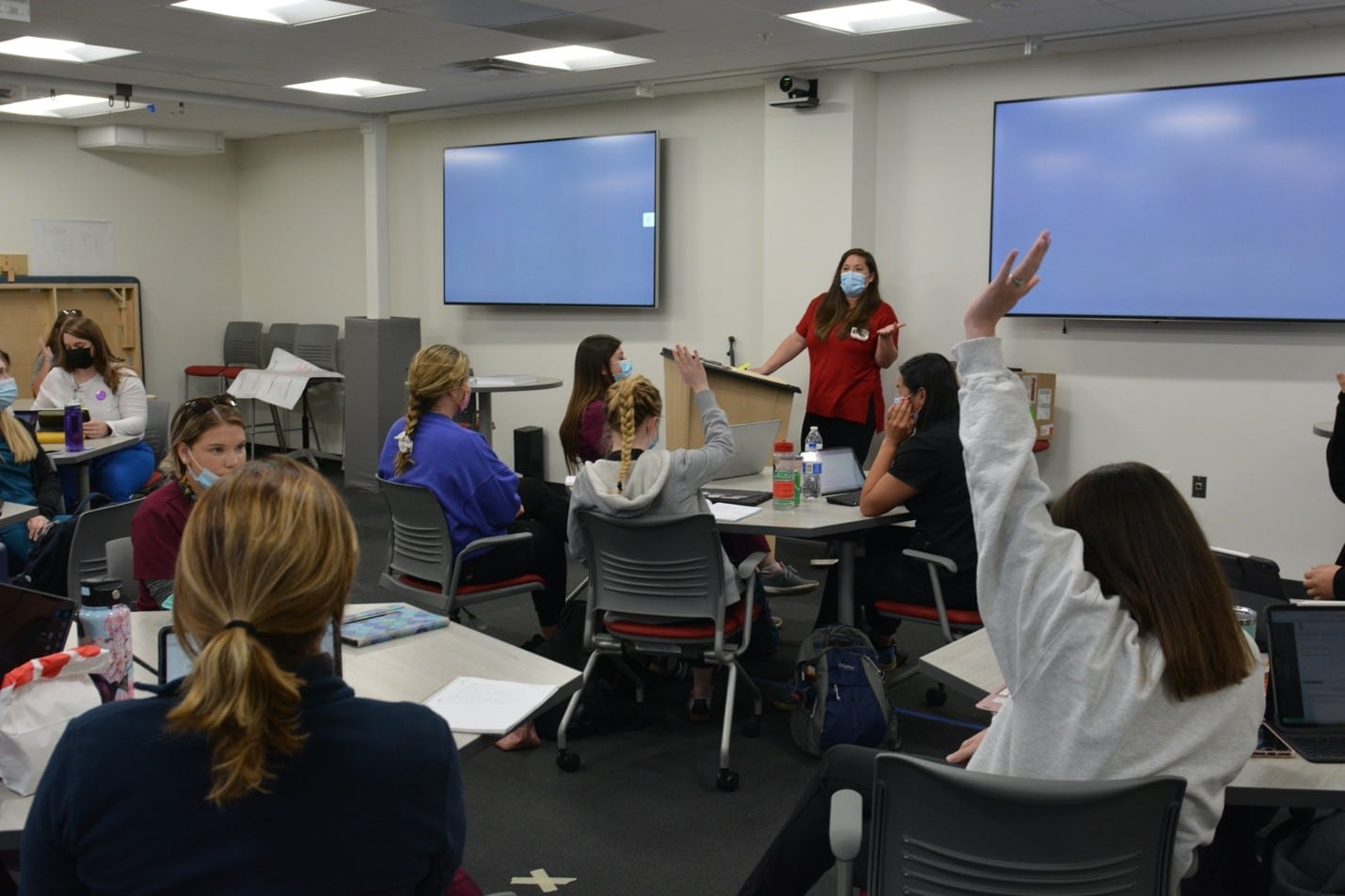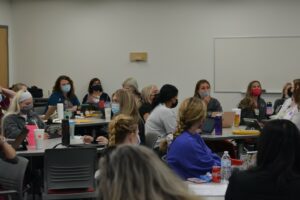UAMS Occupational Therapy Students Break Ground, Complete Mental Health Fieldwork
|
This story was written by Meeghan Gotcher, a senior Public Health major at the University of Arkansas at Fayetteville.
Students at the University of Arkansas for Medical Sciences (UAMS) became the first Occupational Therapy (OT) students in Arkansas to participate in mental health fieldwork in locations across the state.
People who are experiencing mental and behavioral health challenges often struggle to complete necessary activities of daily living and self-management activities. “I believe that occupational therapy is the missing link in mental health treatment,” said Sherry Muir, Ph.D., the founding director and chair of the OT program, which is a joint program between UAMS and the University of Arkansas.
After multiple presentations by Muir and her team to ARISA Health management and its regional directors, ARISA offered 43 one-week, Level 1 fieldwork placements to the OT program. Nineteen OT students were placed at various ARISA sites around the state — Haven Residential Treatment in Conway, Rehabilitative Day Treatment in North Little Rock, Transitional Residential Unit in Corning, Transitional Residential Unit in Jonesboro, Rehabilitative Day Treatment in Paragould and ARISA Recovery at Mills in Searcy. In addition to ARISA Health, the Guidance Center in Fort Smith provided the mental health fieldwork experience to two OT students.
“The idea was to immerse occupational therapy students in day rehab and residential facilities so they could experience clients recovering first-hand and understand the challenges they face on a day-to-day basis,” said Maria Ball, OTD, OTR/L, academic fieldwork coordinator. “Placing students in these facilities provided a unique opportunity to envision occupational therapy’s distinct value to this client population and learn how OT could best support clients and the health care team.”
According to Muir, occupational therapy originally had a focus in mental health, but over time, OT was phased out of the majority of mental health practices. The OT department’s goal is to reintroduce occupational therapists into the mental health field by collaborating with behavioral facilities in Arkansas, which was made possible by The Guidance Center and ARISA Health.
Each student experienced unique encounters at the different institutions.
Sarah Arenas, who visited a transitional unit in Jonesboro, spoke about her work in a men’s inpatient facility. Her team initially faced challenges on deciding how to engage effectively with clients.
The students improvised by using resources found around the institution – primarily an abundant amount of string, which sparked the idea to create friendship bracelets. The clients immediately took to this activity and were then able to utilize a variety of executive functioning (cognitive) skills, including developing a plan for their bracelet, creating a design, collaborating with their peers and learning together to follow the instructions to complete the bracelets.
“We were also able to foster relationships and cultivate conversations around the history behind their experience with crafts, who they participated with to accomplish them in the past, and if there were positive experiences for them,” Arenas said.
Challenges such as this allowed the students to think on their feet and created an opportunity for the clients to work on not only their cognitive skills and coordination, but also their emotional growth.
In addition to the experiences provided by the Guidance Center and ARISA Health, Nancy Wells, LPC, invited Ball and six students to complete a mental health fieldwork experience with her company, AbleTalks, a Fayetteville-based, nonprofit organization that serves adults with autism. Wells and the AbleTalks members educated the students on what it’s like to be an adult with autism. Students learned about the work/life challenges that autistic adults experience and the continuing education and mental health supports that are needed for them to participate in their desired occupations. Once the meetings concluded, the students attended an outdoor lunch where the team was able to socialize and play games with the clients. Ball said this was a great experience for both the students and clients.
After students returned from the one-week experiences, Ball facilitated a debriefing in which the students exchanged stories and shared their learning experiences. A central theme emerged – clients with mental health disorders experience significant occupational deprivation. Students discussed client experiences of dysfunction in many areas, including identifying appropriate and safe leisure activities and daily self-care routines. They unanimously concluded that occupational therapists should have a place at the table as members of the health care team in the holistic rehabilitation of clients with mental health disorders.
The success of these fieldwork experiences resulted in requests for the OT department to expand the experience to Level 2, 12-week clinical placements. They have also requested Capstone student projects.
Muir said the program hopes to progress the partnership to Level 2 placements. However, they face the challenge of Level 2 students needing eight hours of supervision per week by an occupational therapist. These facilities do not employ occupational therapists partially due to reimbursement restrictions from insurance providers, but also because there are few occupational therapists with experience working in this area. Muir hopes that with philanthropic support, the OT program will be able to hire occupational therapists to provide supervision of fieldwork students, enabling the expansion of what appears to be a breakthrough for mental health and occupational therapy in the state of Arkansas.

